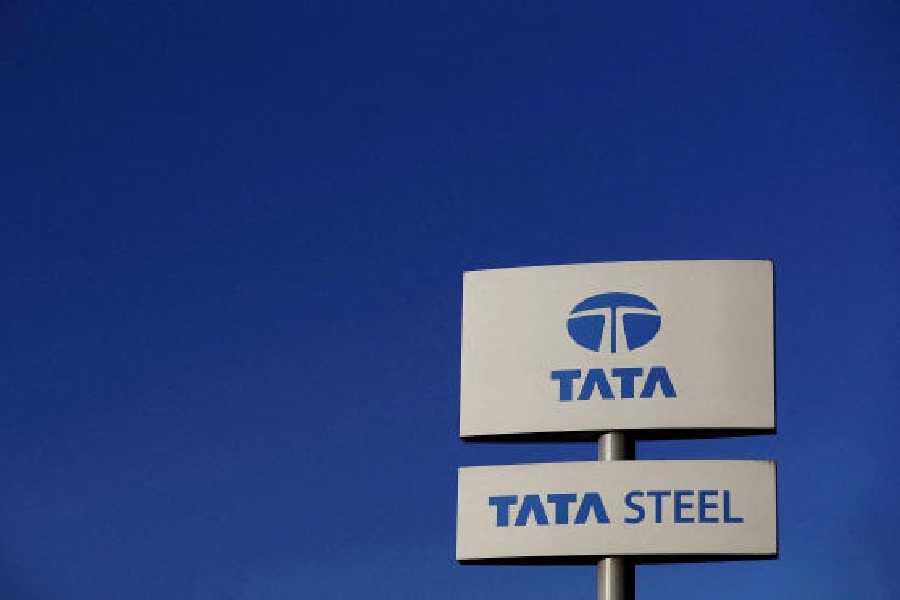Tata Steel suffered a net loss of Rs 6,511 crore in the July-September quarter on a consolidated basis compared with a Rs 1,297-crore profit in the same period a year ago.
A series of provisions related to the proposed green transition of the UK business ate into the profit numbers.
The company took a charge of Rs 6,358 crore on the consolidated balance sheet and Rs 12,560 crore on the standalone balance sheet on account of the UK business where the steel making operations by blast furnace are going to be dismantled and replaced by electric arc furnace, resulting in thousands of job losses.
Standalone loss stood at Rs 8,854 crore compared with Rs 1,856 crore profit in Q2FY23. Consolidated revenue slipped 7 per cent to Rs 55,682 crore.
The spate of write-off follows a non-binding term sheet signed between Tata Steel UK and the Rishi Sunak-government to invest £1.25 billion in Port Talbot for transition from blast furnace (BF) to less carbon intensive scrap based electric arc furnace (EAF), including capital contribution of £500 million by the British government.
There are three major heads to the provision made on the consolidated results. It includes a Rs 2,425-crore provision for restructuring costs such as potential asset closure and redundancy cost. The company did not announce the specific number of job cuts even as it is widely believed to be 3,000. A Rs 1,187-crore charge was taken on account of additional benefits granted to the members of British Steel Pension Scheme (BSPS).
Moreover, a Rs 2,631 crore impairment charge was taken on account of the ‘heavy end assets’ — BF and related equipment — which are going to be used only for a defined period going forward.
On the standalone basis, the impairment charge relates to a step-down subsidiary T Steel Holdings Pte. where Tata Steel had lent $4.115 billion. The carrying value of such loan amounting to Rs 34,168.9 crore was recorded as investment as on September 29, 2023. Considering the cost associated with green transition of the UK business, a charge of Rs 12,560 crore was recognised in the quarter.
While the transition process is in play in the UK, T.V. Narendran, CEO and MD of TSL, said the company would also submit a detailed decarbonisation proposal soon to the Netherlands government seeking regulatory and financial support. Additionally, it is entering into an agreement to secure 379 MW renewable power for India operations, he added.
Koushik Chatterjee, ED & CFO, said the company’s capital expenditure was Rs 4,553 crore during the quarter and Rs 8,642 crore for the half year, mainly for the 5 million tonne Kalinganagar expansion.










